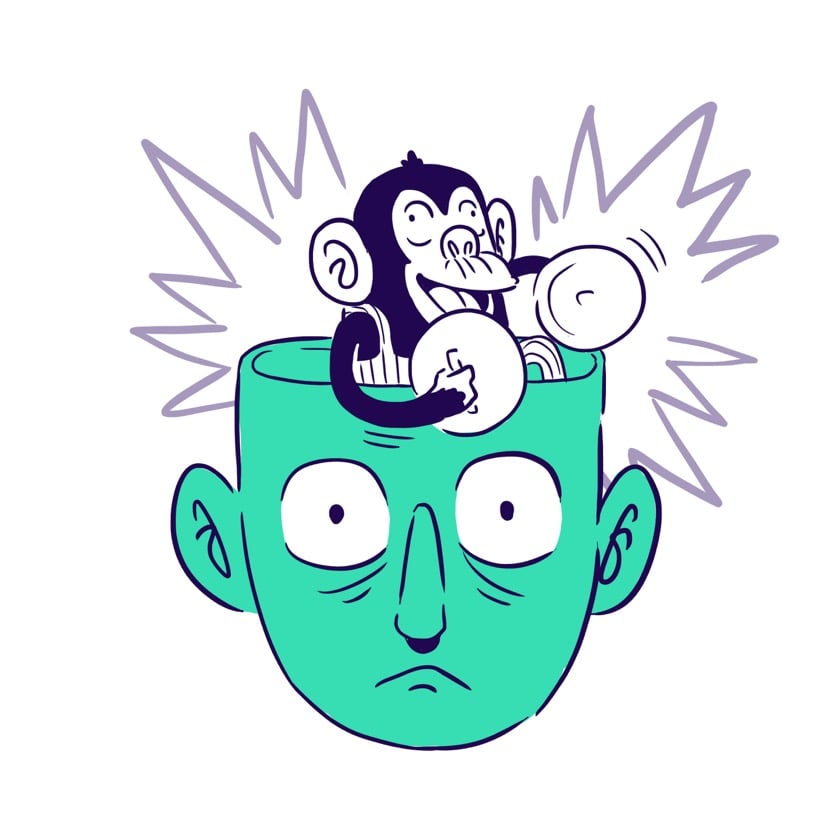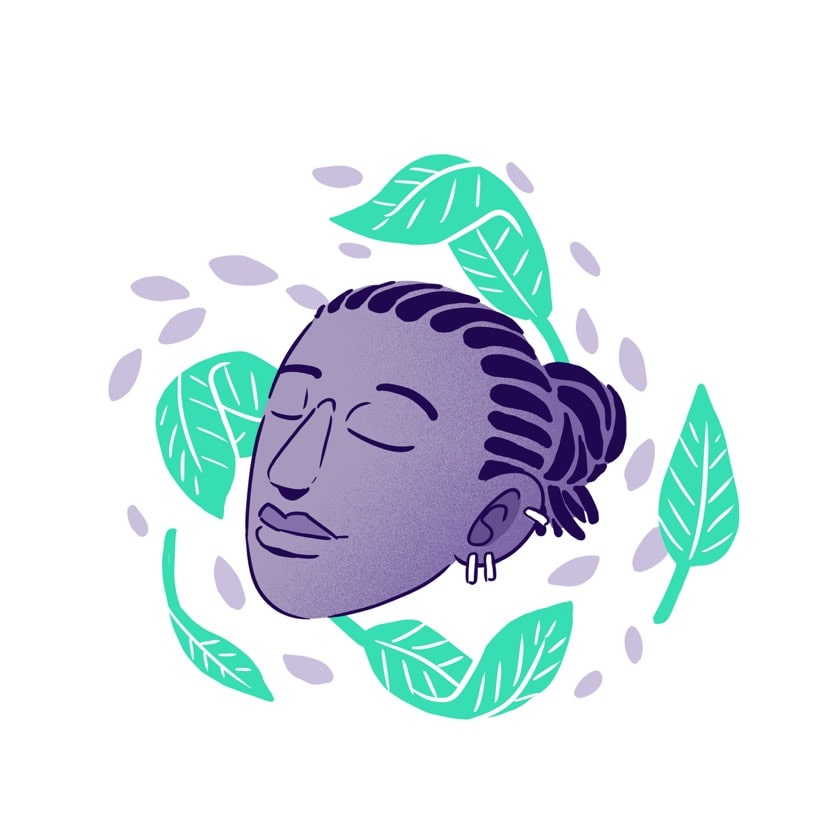Insomnia: what you need to know
Insomnia. Here is a word that resonates like an inevitable bad night ahead, sometimes relentlessly, for the (too) many people who suffer from it. We all know someone who has insomnia problems, and almost everyone can face it at some point. Without going as far as calling it the famous "disease of the century," we can still consider this sleep disorder as a major public health issue, given the impact of insomnia is real on our daily lives. Indeed, a bad night often means a bad day follows!
Thus, combating difficulties falling asleep and reducing nocturnal awakenings proves to be a sometimes difficult challenge. But then, how to overcome chronic insomnia? Are conventional treatments for sleep disorders really effective, or is there a reliable alternative through a natural treatment for insomnia, such as homeopathy for example? Here are some answers, as well as what you need to know about insomnia!
How can insomnia be defined?
Insomnia is the quintessential sleep disorder, so to speak. It is characterized by two factors: difficulties falling asleep at bedtime and frequent or prolonged nocturnal awakenings. This decrease in sleep quality and quantity can manifest as occasional episodes or over longer, even regular and lasting periods.
We speak of transient insomnia when it is episodic and occasional, and we call it chronic insomnia when it manifests over the long term and becomes a recurring and difficult-to-treat health problem. It should be noted that insomnia can be classified into three distinct types, which unfortunately can combine and "occur" simultaneously:
- Sleep onset insomnia: when unable to fall asleep
- Sleep maintenance insomnia: when waking up during the night (multiple times or for prolonged periods)
- Insomnia due to early awakening: when experiencing a premature awakening in the morning
Insomnia is therefore as much a problem of wakefulness as of sleep. According to the "Fondation Sommeil1", it can be characterized by quantifying it as follows :
- Taking more than 30 minutes to fall asleep
- Spending more than 30 minutes awake during the night
- Getting less than 6h30 of effective sleep
Insomnia is therefore defined according to different criteria, and it can take several forms, whether it is difficulty falling asleep, lack of sleep, or nocturnal awakenings. This sleep disorder is, unfortunately, far too present in our society as evidenced by its prevalence figures!

Some figures concerning insomnia
Unlike other sleep disorders, the prevalence of insomnia is relatively well quantified. In France, for example, l’INSERM2 ("Institut National de la Santé et de la Recherche Médicale") estimates that insomnia affects 15 to 20% of the population in its transient (or "acute", i.e. occasional) form, this figure being reduced to 9% for chronic insomnia. These data are relatively corroborated by a 2007 study3 published in the medical journal "Sleep Medicine", which compiled and cross-referenced figures from different countries to highlight a homogeneous trend, applying the same criteria (falling asleep, nocturnal awakening, early awakening) to characterize insomnia. It is thus observed that 30% of the sample of people suffer from transient insomnia and about 10% are victims of a more severe form of chronic insomnia.
Furthermore, if we push the restrictions on criteria even further and exclude the presence of any other sleep disorder, any physical pathology or mental disorder during insomnia episodes, the prevalence drops to 6% of the overall population for symptoms lasting a minimum duration of one month.
What are the causes of insomnia?
Just like the figures concerning it, insomnia has fairly clearly identified causes. Indeed, there are 3 different types of origins to explain this sleep disorder, as reported by the specialized and referenced organization for sleep, " SleepFundation4 " :
-
Psychological causes:
- Stress
- Depression
- Anxiety
-
Physiological causes:
- Lifestyle: consumption of alcohol, tobacco, stimulants (caffeine) or medication, heavy meals, screens and blue light in the evening…
- Unfavorable environment: noise, inappropriate bedroom temperature, nearby electrical source, light…
-
Pathological causes:
- Diseases: hyperthyroidism, asthma, gastroesophageal reflux, rhinitis…
- Painful pathologies: rheumatism, fever, cancer…
- Sleep disorders: sleep apnea, restless legs syndrome…
Several studies5 tend to affirm that the main cause of insomnia would be a form of “increased activity of the central nervous system, as well as the hypothalamic-pituitary-adrenal axis,” which is responsible for the stress response. Behind this very specialized vocabulary, it can be translated into more common language that our brain's response to stress, anxiety, or depression manifests as a "hyperarousal" syndrome due to an increase in cerebral glucose levels (which "excites" the brain), as explained by INSERM6. The transition between sleep and wakefulness is then disturbed.
Thus, it is observed that chronic insomnia is essentially “psychophysiological” and caused by depression or anxiety (in 40% of cases7), sometimes creating a vicious circle resulting in fear of sleep or “performance anxiety of sleep8.” Other factors such as age may come into play because yes, it is a fact, we sleep less as we age!
Symptoms and diagnosis of insomnia
The symptoms of insomnia are visible and easily identifiable because they greatly affect our daily lives:
- Feeling tired during the day, drowsiness
- Attention or memory disorders
- Headaches
- Irritability, nervousness
- Stress
Insomnia is a nighttime phenomenon, but it is clear that its consequences are felt in daily life, during the day, whether mentally, morally, or physically. The insomniac is tired, irritable, unmotivated, feels stress, and the disruption of the circadian rhythm caused by insomnia could even impact their health, causing hypertension or even weight gain!
Diagnosing insomnia primarily involves performing a clinical examination. During a consultation, the doctor conducts a questionnaire to collect the patient's medical history, as well as their impressions and feelings about the quality of their sleep. Symptoms such as stress, fatigue sensation, or irritability allow insomnia to be diagnosed quite easily. Moreover, besides an appropriate questionnaire, the establishment of a sleep diary by the patient allows precise monitoring that helps characterize this sleep disorder by collecting the frequency and duration of insomnia episodes.
What treatments for insomnia?
Insomnia is not a trivial sleep disorder. Chronic insomnia and poor sleep quality have consequences that can be serious if not treated. When the cause(s) of insomnia are identified and it is a disease, the disease in question must be treated to reduce its influence on sleep time. For example, prescribing painkillers in cases of conditions such as rheumatism, back pain, or any pain. Regarding physiological causes, one can sleep better and regain better sleep quality by changing diet (eating light in the evening, avoiding stimulants...), lifestyle (going to bed at a fixed time), and avoiding sleep disruptors such as blue light from screens, tobacco, alcohol, or too high a temperature in the bedroom.

These small daily reflexes or habits to adopt can help have a good night and regain restorative sleep when the cause of sleep problems is physiological!
However, as we have seen previously, insomnia is very often psychological (stress, depression, mental disorders...). Therefore, the use of medication based on sleeping pills is often necessary to fight insomnia and facilitate falling asleep. Nevertheless, the long-term side effects of these sedatives are recognized by numerous studies9. They only allow treating transient occasional insomnia over a short period. The question then arises: how to overcome chronic insomnia? Besides powerful sedatives, which are dangerous for health in the medium and long term, natural and alternative treatments, such as hypnosis, are beginning to appear and bring encouraging results10.
Indeed, more and more studies are focusing on hypnosis, but also on Cognitive Behavioral Therapies (“CBT”), to verify their effectiveness in combating insomnia in a more psychological way. The results of the latter11 suggest that CBT could be a treatment for insomnia that would be interesting to further explore. On the phytotherapy side as well, it appears that natural treatment based on certain plants such as valerian, passionflower, or even lavender produces satisfactory results12 to fight insomnia and regain quality sleep, in addition to an adapted lifestyle hygiene that promotes falling asleep. Moreover, the use of cannabis (more precisely the cannabidiol molecule) is also studied by scientists13 as a complement to treatment against insomnia and anxiety, or even as a primary treatment for these disorders. Encouraging results to improve sleep quality and stress reduction have been recorded but need to be confirmed by further studies.
Insomnia is a major sleep disorder that should not be overlooked given its direct and sometimes dangerous consequences on health, as well as its very harmful impact on daily life. However, insomnia deserves credit in one respect: it has greatly inspired literature, especially French literature, as evidenced by Victor Hugo who described his insomnia in a poem 14 aptly titled… “Insomnia”! Here is a passage from this poem taken from the collection “Les Contemplations” that illustrates the writer's persistent insomnia:
"— Peace there! go away, executioner! as for the verse, I let it go. —"
"I want to sleep all night like an old coward;"
"Come on, take care of your poor companion a little."
"I am weary, I am dead, let me sleep! — No!"
"Am I sleeping, me? said the relentless Idea."
While conventional treatments for transient and occasional insomnia show some short-term effectiveness, traditional medications (sleeping pills, anxiolytics…) prove more dangerous in the long term when it comes to treating more severe chronic insomnia. Therefore, resorting to a natural treatment to manage stress and thus improve sleep quality should be considered, for example meditation or any type of alternative natural treatment. There are effective alternative methods such as Hoomband or Dodow. The first, Hoomband, is a headband equipped with headphones, to be placed on the head at bedtime, which plays suitable sound content promoting relaxation and sleep. The second, Dodow, is a discreet small box that emits a light halo from which you must synchronize your breathing to relax and fall asleep. Light games or listening to a story, choose your solution for better sleep! Finally, lifestyle hygiene is also important and should be taken into account to address the physiological causes of insomnia.
Often, reading a good book, a poem by Victor Hugo, or listening to a story with Hoomband can help you find sleep more easily. Unlike medication, it is not harmful to health and requires no prescription!
In addition to this article:
- Here is a link to a video from "Natural Medicine World" with Dr. Bredell discussing the benefits of homeopathy to help overcome stress and insomnia: Homeopathy : a solution to insomnia
- Here is another link to a "Ted" video by Dan Kwartler, simple and playful, to easily understand the causes of insomnia: What are the causes of insomnia?
Sources :
[1] Insomnia: definition, causes and consequences, Pr Charles M. Morin, site « Fondation Sommeil », 2020 [2], [6] and Insomnia: a neurobiological and psychological disorder, site « INSERM », September 2017 [3], [5] and [7] Insomnia: Definition, Prevalence, Etiology, and Consequences, T.Roth, PhD, « Journal of Clinical Sleep Medicine », August 2007 [4] What Causes Insomnia?, site « SleepFundation », 2020 [8] The Different Types of Insomnia, Pr Charles M. Morin, site « Fondation Sommeil », 2020 [9] Residual Effects of Sleep Medications Are Commonly Reported and Associated with Impaired Patient-Reported Outcomes among Insomnia Patients in the United States, T. Fistzgerald, J. Vietri, « Sleep Disorders », December 2015 [10] Hypnosis Intervention Effects on Sleep Outcomes: A Systematic Review, I. Chamine, R. Atchley et al, « Journal of Clinical Sleep Medicine », February 2018 [11] Cognitive-behavioral therapy for primary insomnia, J.D. Edinger, M.K. Means, « Clinical Psychology Review », July 2005 [12] Plant Extracts for Sleep Disturbances: A Systematic Review, S. Guadagna, D.F. Barattini et al, « Evidence-Based Complementary and Alternative Medicine », April 2020 [13] Cannabidiol in Anxiety and Sleep: A Large Case Series, S. Shannon, N. Lewis et al, « The Permanente Journal », January 2019 [14] Les Contemplations : Insomnie, Victor Hugo, site « Wikisource », 2020
